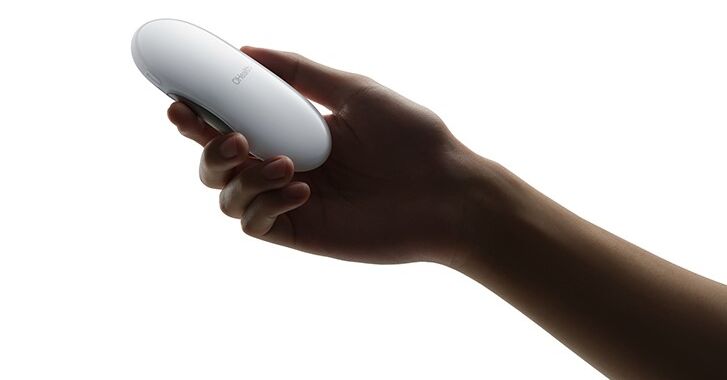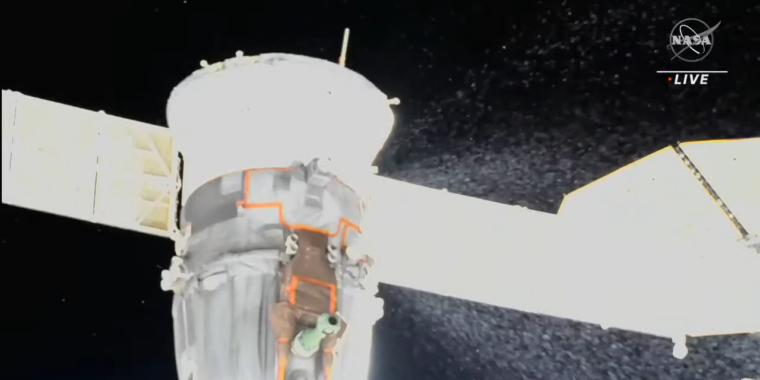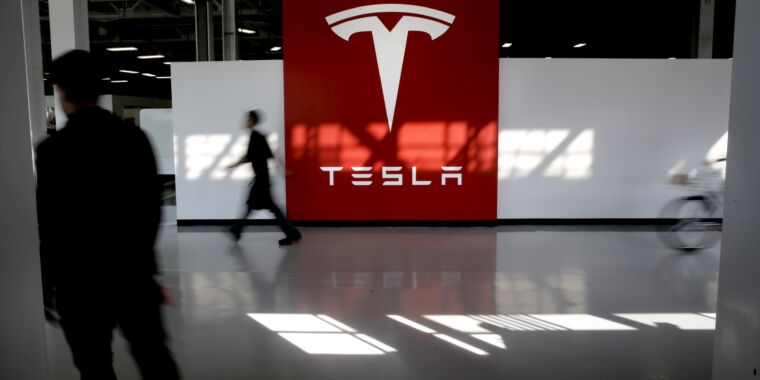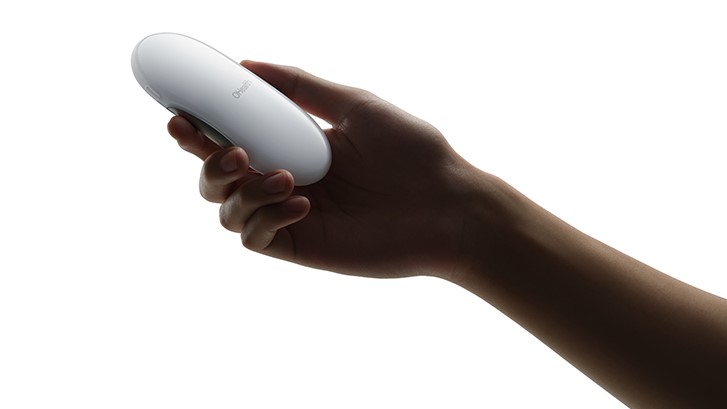
This time of year is often weird tech concept season—companies show us gadgets that they’ve been tinkering with and may or may not sell. Chinese smartphone maker Oppo is getting started ahead of CES with an intriguing smart health tracker meant for the whole family. Like fitness trackers and smartwatches, Oppo’s OHealth H1 family health monitor uses sensors to track various health stats. But unlike those wearables, the H1 prototype is meant to be held in your hand—or to the forehead, chest, or back—when taking readings.
Oppo shared a video today demonstrating this “concept prototype” as part of its fourth annual Inno Day event, where the company has previously shown confirmed products, like this year’s Bluetooth audio system-on-a-chip, and its concepts. The event has included in-person attendance in the past, but this year’s event looks like it was just a video shared online Although only a concept, Oppo’s calling the H1 the first product from its “smart healthcare sub-brand” launched this year, OHealth.
The H1 uses sensors and algorithms to provide ECG, heart rate, blood oxygen, and body temperature readings. It also claims to be able to track sleep, and through skin contact, Oppo says the H1 can perform heart and lung auscultation. Oppo said readings could be taken simultaneously or one at a time for better accuracy.
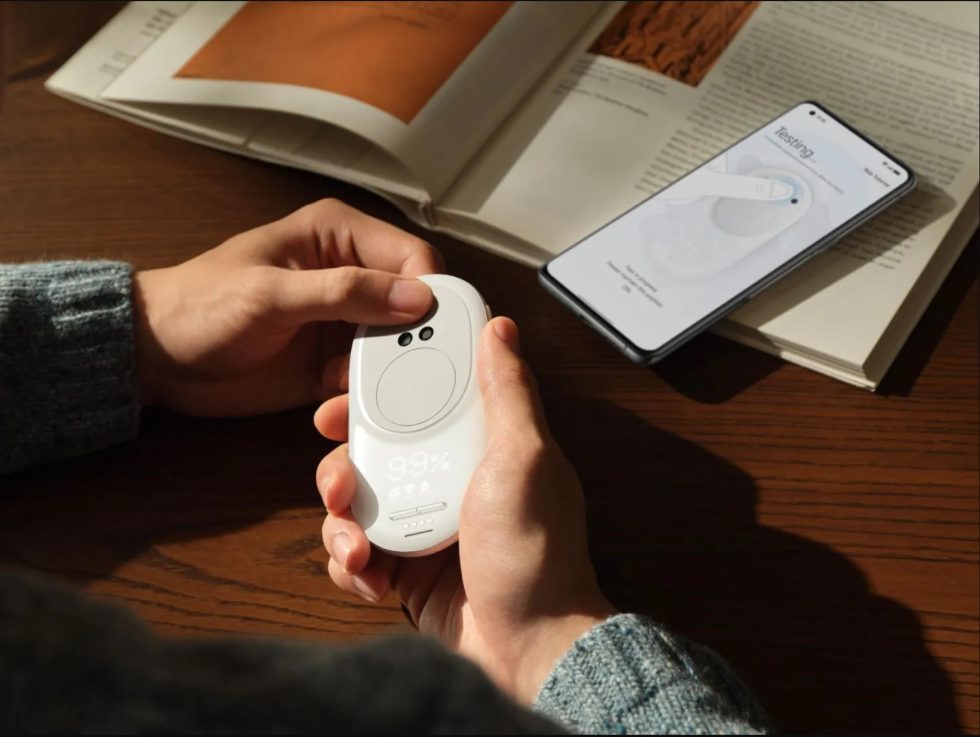
While you don’t need a smartphone to use the H1’s features, Oppo hopes to have a smartphone app so users can share their H1 information with health care providers.
That rounded, pebble-like shape, white color scheme, and glossy finish make the H1 look more like Apple’s Magic Mouse or a massive skipping stone than a health tracker. According to Oppo, the H1’s appearance is meant to differ from the “industrial designs” of most health care devices and look more attractive inside people’s homes. Combined with the 3.4-ounce (95 g) weight, Oppo thinks the H1 will be easy for family members to carry around and use consistently.
How it works
In its video, Oppo senior director Ye Yuchen said the device has all its sensors on the rear in “a compact, symmetrical design.” The device doesn’t require a phone to start working. You could pick it up, and place it on your child’s forehead, for example, to get a temperature reading.
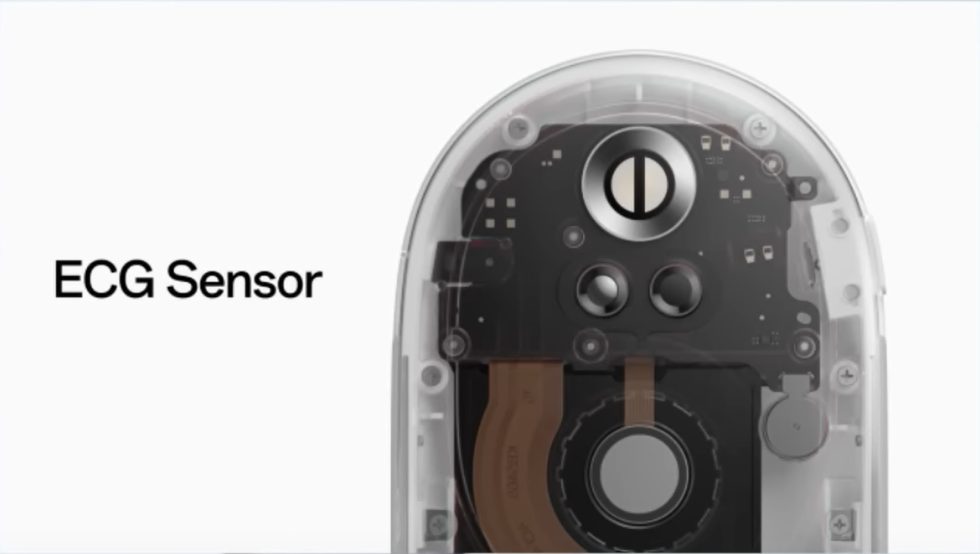
Oppo/YouTube
Oppo claims the H1’s ECG uses larger stainless steel electrodes than that of smartwatches for greater accuracy. For monitoring blood oxygen levels, the device checks the fingertip, where capillary samples are most frequently taken, rather than the wrists.
Meanwhile, body temperature readings are said to be taken by reading infrared measurements from a user’s forehead, as well as the room’s temperature. And Oppo worked with blood pressure monitor and cuff maker Omron to develop the H1’s blood pressure monitoring feature.
For heart and lung auscultation, the H1 employs a proprietary physioelectric ceramic sensor stack that makes the H1 work like an electric stethoscope when you place it on someone’s back or chest.
Finally, the H1 is supposed to track sleep by measuring your breathing, heartbeat, and body movements via vibrations in the mattress. Oppo claims it works from a distance of 7.9 inches (20 cm) from the user. However, with this being demoed as a family product, this means either some people in the family won’t be able to track their sleep or homes would need more than one H1.
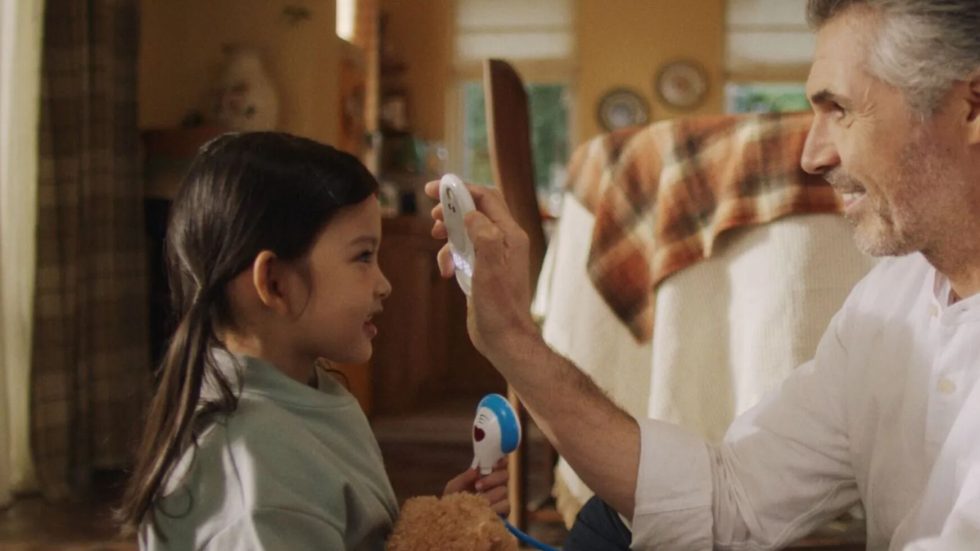
Oppo
On the sleep tracker side, the H1 is lightly reminiscent of Amazon’s Halo Rise, a sleep tracker that sits on a nightstand and, per its product page, uses “no-contact sensor technology, measuring body movement and breathing to calculate sleep stages.” The H1, though, looks to add additional health-related features in a more mobile factor that’s meant to be shared among family members.
Unlike wearables, the H1 isn’t meant to be worn constantly but, rather, to perform spot-checks on things like blood pressure or monitor ongoing conditions or symptoms and then share that data with health professionals. Therefore, the H1 might not provide the same volume of consistent data that, say, an Apple Watch provides. Instead, it could be a shared gadget for ad hoc sleep tracking and the like. We could also see a product like this sold to businesses.
Oppo didn’t share detailed plans for making the H1 commercially available. But if it ever sells the health tracker, it’s less likely we’d see it in the US since (beyond regulatory hurdles) the company doesn’t currently do business here.
You can watch Oppo’s video about the H1 below:
Oppo Inno Day 2022 | Launch Event

